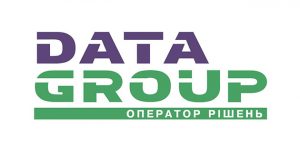
The national operator Datagroup is investing $20 million in a project to modernize the all-Ukrainian backbone network in partnership with the world leader in production of network equipment Cisco (the United States), the company’s press service said.
Datagroup notes that investments in the project will amount to $20 million, and the project itself will help the company bring the quality of services to a higher level.
At the same time, it is specified that the company carried out thorough preparation for a tender and chose the best world equipment manufacturers to participate in it. Based on the results of the tender, Cisco became the project vendor.
“In 2020, the company’s network traffic grew by 35%. We made a decision on a large-scale network modernization, which will allow us to implement our business strategy. It will also lay the foundation for business growth for 10 years: it will allow us to introduce various innovative services and attract new clients in corporate, public and private sectors,” CEO of Datagroup Mykhailo Shelemba said.
The press release says the total length of the Datagroup high-speed data transmission network is more than 22,000 km: these are long-distance DWDM and MPLS networks, and urban MPLS backbone networks in the major cities of the provider’s presence. The modernization will apply to all levels of the network and will significantly increase its throughput.
Datagroup was founded in 2000. It is one of the largest B2B operators in Ukraine, provides services in more than 90 settlements of the country.
The company provides Internet connection, telephony, television and video surveillance services, as well as a cloud service from Microsoft and a range of cybersecurity services – DataProtect.
Data Group in 2019 increased its net profit by 6.97 times compared to 2018, to UAH 141.764 million.
National bank of Ukraine’s official rates as of 08/04/21

Source: National Bank of Ukraine
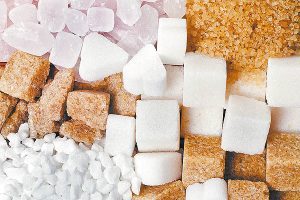
The Ministry of Development of Economy, Trade and Agriculture of Ukraine is considering issuing licenses in the near future to import additional 50,000 tonnes of raw sugar, the ministry said on its website on Thursday.
“The cost of sugar produced from imported raw material is about UAH 20 per kilogram. Accordingly, after the import in the coming weeks, the price situation will level out and sugar will become more affordable for Ukrainians. Meanwhile, the parliament is considering the possibility of a temporary zeroing of duties on imports of white sugar to Ukraine, which will also contribute to the saturation of the domestic market with sugar,” the ministry’s press service said, citing Deputy Economy Minister Taras Vysotsky.
He said that in February-March, 40,000 tonnes of sugar were also imported under the established tariff quota with a zero duty rate in accordance with the EU-Ukraine Association Agreement.
According to the Economy Ministry, imports of additional raw sugar will provide the processing industries with a sufficient amount of raw materials, which will saturate the market and lead to a decrease in the retail price.
As reported, on April 5, the Antimonopoly Committee of Ukraine (AMCU) launched an investigation into the grounds of anticompetitive concerted actions on the primary sugar market against the Astarta Group and Radekhiv Sugar LLC (Lviv region), which during September-November 2020, equally increased the wholesale selling prices for this product by an average of 48%.
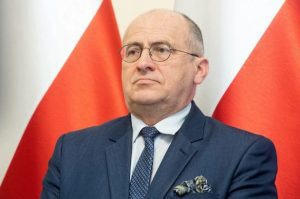
Foreign Minister of Poland Zbigniew Rau arrived on a visit to Ukraine, Foreign Minister of Ukraine Dmytro Kuleba has said.
“We planned to meet later, but taking into account the situation, Zbigniew Rau adjusted his plans and arrived in Kyiv earlier at my invitation. Purpose is to strengthen the Ukrainian-Polish strategic partnership amid the aggravation of the security situation by Russia,” Kuleba wrote on Twitter on Thursday.
The foreign minister said that Poland is a long-time ally and reliable friend of Ukraine.
As reported, Rau is on a working visit to Ukraine on Thursday. The Foreign Ministers of Ukraine and Poland will hold talks on the entire range of issues of strategic partnership between the countries, discuss further interaction and increase the volume of trade and investment.
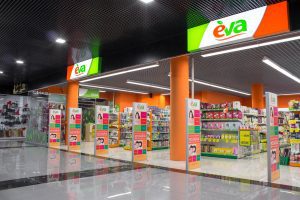
The proceeds from the placement of two new bond issues of Series G and H with a total nominal value of UAH 500 million, the Line of EVA Stores chain (RUSH LLC) wants to use for its development, Financial Director of the Line of EVA Stores Lilia Volenko has told Interfax-Ukraine.
“The funds from the placement are planned to be used for overhaul and maintenance of new and existing stores, the purchase of commercial equipment, the acquisition of intangible assets (software licenses, which is necessary for the operation of chain stores), the purchase of security equipment (security and supervision systems), attraction and personnel training and purchase of goods in order to maintain the necessary assortment line for new stores of the Line of EVA Stores,” she said.
The national chain Line of EVA Stores (the issuer is RUSH LLC) in February and March 2021 fully redeemed the issue of bonds of Series E, F (interest-bearing registered unsecured) with a par value of UAH 200 million. The maturity dates were fully consistent with those indicated in the prospectus. Reports on the consequences of redemption are submitted for approval to the National Securities and Stock Market Commission. The bonds were outstanding from 2018 to 2021, the holders received income in the amount of 18% and 17% per annum (the interest rate was changed annually).
Having significant plans for further investment in the development of the company, RUSH LLC registered a new issue of bonds (Series G and H) with a total par value of UAH 500 million (Series G for UAH 300 million, Series H for UAH 200 million). Their outstanding period is six years. Bondholders have the put option after the end of the 8th and 16th coupon periods.
The bond issue was registered without a public offering. The conclusion of contracts with the original holders is scheduled from February 23, 2021 to April 22, 2021 for G Series and from March 10, 2021 to May 8, 2021 for H series.
The underwriter of the issue is ICU Group, an independent investment and consulting group providing asset and private equity management services.
The bonds have been assigned a long-term credit rating according to the National rating scale “uaA +” by the National Authorized Rating Agency IBI-Rating. The outlook is Developing.
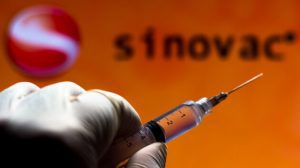
State-owned enterprise Medical Procurement of Ukraine has confirmed to the Lekhim company its readiness to accept the supply of vaccine against coronavirus (COVID-19) manufactured by Sinovac Biotech Ltd. under a procurement agreement for the national budget’s funds.
The Health Ministry of Ukraine told Interfax-Ukraine, Lekhim provided the state-owned enterprise with all the necessary documents that are required when informing about the shipment of products.
Among these documents, in particular, an invoice, a certificate of quality (analysis) of a series of products, a marketing authorization, a certificate of origin from the manufacturer, information on WHO retraining and/or a marketing authorization from a competent authority of one of the designated countries, a packing list and a document confirming adherence to the cold chain and others.
Medical Procurement of Ukraine says that the documents were handed over by the supplier on Tuesday.
“Having processed the documents sent by the supplier company yesterday, the Ministry of Health confirmed to the counterparty its readiness to accept the batch of products specified in the supplier’s documents in the amount of 200,000 bottles/syringes,” the Health Ministry said.
At the same time, the state-owned enterprise says that “the implementation of this delivery does not release the supplier from the obligation to pay a penalty and fine.”
According to the Health Ministry, a penalty for each day of delay will be charged starting March 6, 2021.